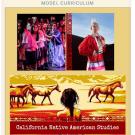Grade 8
Land Acknowledgment Toolkit
Toolkit developed by CA Indian Culture & Sovereignty Center and CSU San Marcos American Indian Studies. The purpose of the toolkit is to encourage all academic staff, students, administrators to acknowledge the original nations on whose land we live, learn, and work.
Tribal Government and Civics
The Tribal Government and Civics units aim to provide an understanding of tribal, state, and federal governments, with a particular focus on Native Americans' roles as citizens within these three communities. Native Americans hold a unique position in the United States, as they potentially belong to tribal, state, and national communities, whereas most U.S. citizens are only part of state and national communities. This unit will delve into the interactions and impacts of these governments on one another. This unit of Indian Policy: Colonial Legacy will share important events from the Doctrine of Discovery, European Arrivals, U.S. Constitution, and Federal Treaties with Tribes. Additionally, it will explore how the diverse ways of life of Native American peoples were disrupted, displaced, and significantly altered by the Westward Expansion, settler colonialism, and governmental policies and practices from the 1800s to the 2000s. Ultimately, the unit will support California youth to engage in civics education, design thinking, and service learning projects that explore issues that face them and their communities directly. The youth will plan and design activities that address the issue emphasizing tribal cultural values, leadership principles, and civic responsibilities. There will be opportunities for projects to engage with tribes, tribal communities, and tribal organizations. Our major goals are to increase civic skills of Native and non-Native youth so that they may become more active problem solvers within their own communities and the wider community. Additionally, students will have opportunities to participate in collaborative learning to partner tribes and organizations to conduct effective service learning.



